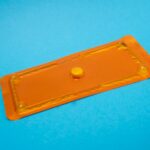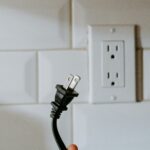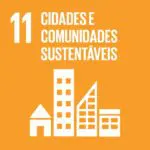
Where to dispose of medicines and their packaging?
In the medicine cabinet, there are always those that end up not being used in their entirety, or whose expiration date has already passed. And
More collection points and initiatives with municipalities were some of the factors that contributed to the increase.
Last year, Electrão (electronic waste bins) sent 40% more electrical equipment for recycling compared to 2021 figures. The waste management entity collected a total of 23,934 tons of equipment.
Large household appliances make up the largest portion (13,000 tons), followed by smaller equipment (10,000 tons), which includes small appliances used for food preparation, personal hygiene, or computer and technology equipment.
The continuous expansion of the collection network, the commitment and professionalization of the different partners, a new policy of incentives for the collection and recycling activity, and the collaboration with municipalities, municipal waste management systems, and waste management operators, with whom Eletrão has reinforced its collaboration in 2022, explain the increase in recycled waste. “The strengthening of collaboration with these operators has allowed the collection and recycling of 6,665 tons of used equipment, mostly from companies,” as the statement indicates.
According to Electrão, appliances collected directly by its network of collection sites – currently with more than 9,000 points – have increased by 6% over 2021. Own collections increased from 16,250 tons to 17,268 tons between 2021 and 2022.
To continue increasing the number of electrical equipment sent for recycling, Electrão highlights the role of the door-to-door collection project, implemented in several municipalities of the Lisbon metropolitan area. This is a way to fight the parallel market and avoid the disposal of large appliances
on the public road.
“We have to continue fighting the indifference of a significant part of the population to the need for waste separation and recycling. It is also important to monitor and sanction economic agents operating in the parallel market who prevent the proper environmental treatment of used electrical equipment,” points out Electrão’s CEO, Pedro Nazareth.


In the medicine cabinet, there are always those that end up not being used in their entirety, or whose expiration date has already passed. And

The Local Councils that gather the highest amount of Waste Electrical and Electronic Equipment (WEEE) and Battery Waste will be rewarded. “Junta na Freguesia” (“Gather

Although the oil from canned goods can be used for consumption, some people prefer not to use it. We know that there can be doubts

This article addresses an action that promotes change towards more inclusive, safe, resilient and sustainable cities and communities, helping toreduce the adverse environmental impact of cities.
 To discover businesses that are actively working to contribute to this Sustainable Development Goal, click here.
To discover businesses that are actively working to contribute to this Sustainable Development Goal, click here. To read news, interviews or tips related to this Goal, click here.
To read news, interviews or tips related to this Goal, click here.Esta publicação também está disponível em:
![]() Português (Portuguese (Portugal))
Português (Portuguese (Portugal))